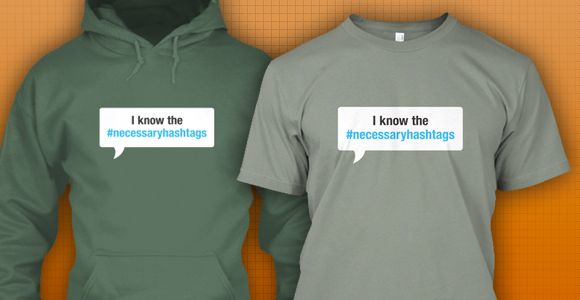from the oh,-and-to-break-encryption-to dept
So, last week a clearly troubled individual by the name of Khalid Masood killed four people in Westminster and, as happens all too often after something bad happens, politicians went insane. But no one more so than UK Home Secretary Amber Rudd, who really maybe should have taken a moment or two to find out what the hell she was talking about before going on TV spouting off complete and utter nonsense about technology, social media and encryption. Instead, Rudd, who again, I remind you, is in a very powerful position within the British Cabinet (sort of loosely equivalent to the head of Homeland Security in the US) said this while talking about getting various social media companies to be more proactive in censoring content:
“What I’m saying is the best people who understand the technology, who understand the necessary hashtags to stop this stuff even being put up, not just taking it down, are going to be them. That’s why I would like to have an industry-wide board set up where they do it themselves.”
The best people... who understand the necessary hashtags. The. Necessary. Hashtags. Or should that be #NecessaryHashtags. I mean, that's so insane that it distracts from the fact that the UK Home Secretary is literally saying that she wants internet companies to come together in a mass collusion to censor content the UK Home Secretary doesn't like.
Believe it or not, that wasn't even the craziest thing that this person-in-power had to say. Prior to the #NecessaryHashtags, we were given a full throated UK-version of James Comey and his silly, debunked "going dark" nonsense, just with a British accent:
“It is completely unacceptable. There should be no place for terrorists to hide.
“We need to make sure that organisations like WhatsApp, and there are plenty of others like that, don’t provide a secret place for terrorists to communicate with each other.
“It used to be that people would steam open envelopes, or just listen in on phones, when they wanted to find out what people were doing, legally, through warrantry, but in this situation we need to make sure that our intelligences services have the ability to get into situations like encrypted WhatsApp.”
We don't necessarily (hashtag or not!) need to rehash just how wrong this is -- we've covered that plenty of times in the past. The fact is there are always going to be tons of places where "terrorists" can communicate with each other that no one can see. Sometimes it will be in person. Sometimes it will be in public, but using a pre-designated code. And, of course, even more importantly, this crazy decision to blame encrypted communications apps in a case where even Rudd admits the guy was a lone actor, completely ignores just how important encrypted, private communications are to the rest of us. It takes quite a misguided thought process to think "here we have a disturbed lone actor who did an attack, and therefore we need to make absolutely everyone else significantly less safe." It takes an even more misguided process to take that thought and go on TV and announce it as an official plan of the UK government.
Oh, and remember, this is the same UK government that just months ago got massive new powers to spy on the public.
If it's not yet obvious from what was said above that Rudd is just playing tech buzzword bingo and has simply no idea what she's talking about, she also said this:
“We’re not saying open up, we don’t want to go into the cloud, we don’t want to do all sorts of things like that, but we do want them to recognise they have a responsibility to engage with government, to engage with law enforcement agencies when there is a terrorist situation”.
You're not saying open up and you don't want to go into the cloud? But you are saying that encryption shouldn't be allowed to work? What is she even saying? This is all nonsense. The companies do engage with governments all the time. When given a valid and legal warrant, they do what they can. Sometimes that's nothing.
Of course, all of this is coming on the heels of another misguided outrage at other tech companies for sometimes allowing bad people to use their tools. Paul Bernal has an oasis of sanity responding to some of this cesspool of craziness.
Terrorists use the internet to communicate and to plan because we all use the internet to communicate and plan. Terrorists use the internet to access information because we all use the internet to access information. The internet is a communicative tool, so of course they’ll use it – and as it develops and becomes better at all these things, we’ll all be able to use it in this way. And this applies to all the tools on the net. Yes, terrorists will use Google. Yes, they’ll use Facebook too. And Twitter. And WhatsApp. Why? Because they’re useful tools, systems, platforms, whatever you want to call them – and because they’re what we all use. Just as we use hire cars and kitchen knives.
[....]
The same is true of privacy itself. We all need it. Undermining it – for example by building in backdoors to services like WhatsApp – undermines us all. Further, calls for mass surveillance damage us all – and attacks like that at Westminster absolutely do not help build the case for more of it. Precisely the opposite. To the surprise of no-one who works in privacy, it turns out that the attacker was already known to the authorities – so did not need to be found by mass surveillance. The same has been true of the perpetrators of all the major terrorist attacks in the West in recent years. The murderers of Lee Rigby. The Boston Bombers. The Charlie Hebdo shooters. The Sydney siege perpetrators. The Bataclan killers. None of these attacks needed identifying through mass surveillance. At a time when resources are short, to spend time, money, effort and expertise on mass surveillance rather than improving targeted intelligence, putting more human intelligence into place – more police, more investigators rather than more millions into the hands of IT contractors – is hard to defend.
Why is it that all the sane thoughts on this seem to be coming from outside the government, and the craziest ideas coming from those in the highest positions of power?
Filed Under: amber rudd, censorship, encryption, free speech, going dark, necessary hashtags
Companies: telegram, whatsapp, wordpress



